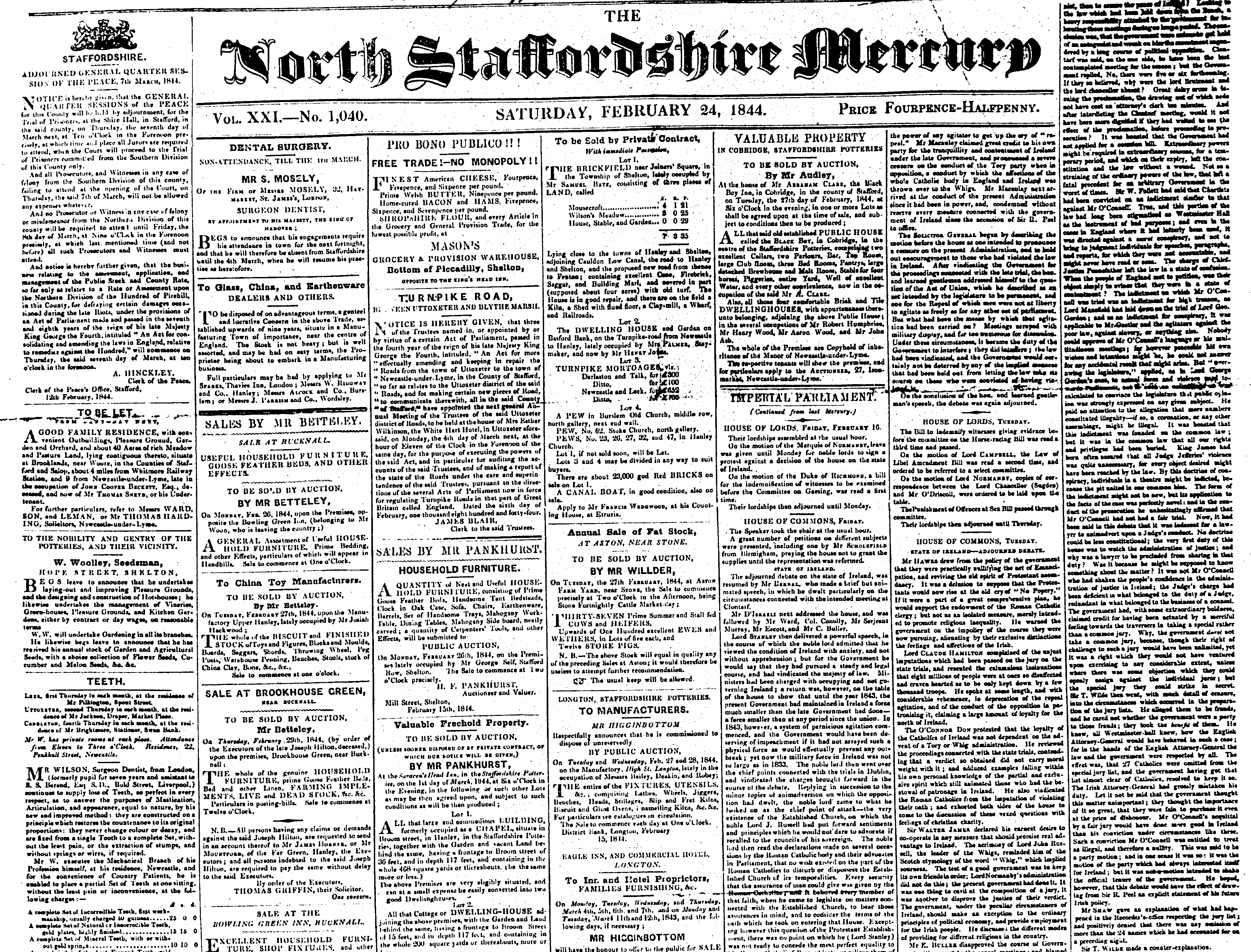If I stated that this collection of the Potteries Mercury from 1830-1846 was a unique collection being the only one in the world in its present format, I would not be exaggeration and is exclusive only on this site and it is now offered in a totally different format than the original the copyright is mine only.
It could be nearly thirty years ago when I used to purchase just a few at a time from the British Library in 35mm reel format which could not be accessed without a viewer and even then, impossible to search or copy therefore unable to do anything with them for possibly nearly twenty/thirty years until technology improved allowing me to have them converted and each reel placed become available on a cd. So could have then downloaded onto my computer for ease of use and copy paste etc.
Because of the high cost at the time, this process like the same as acquiring, the original collected taking several years to first purchase them one at a time, then the cost of having each converted from 35mm file to cd again at considerable cost. The total cost could easily be several thousands of pounds invested over all these years.
Now as it happens the British Library no longer hold this collection but have sold it on with all other newspapers a number of years ago both national and local. As a result, they are my copywrite as they are no longer in the original format and am the only person to have this unique collection of the first newspaper published in North Staffordshire and this is the very first time are now available to purchase.
The Staffordshire Mercury was a weekly regional newspaper published Hanley in Staffordshire. The publication was founded in 1824 by Thomas Allbut, with the Rev. Leonard Abington as its first editor. It was later renamed The Potteries Mercury at some point. Sadly, for the years copies from 1824-1830 have not survived or deposited in the British Library. The paper became the North Staffordshire Mercury in March 1834 but returned to being named the Staffordshire Mercury in April 1845. The paper probably folded in May 1848.
war 4 Keep the Home Fires Burning.
£6.00This is probably the most researched article written within this archive consisting of twenty-six pages, 17,000 words with loads of photographs in support. It is a unique record of the war years of a small village called Penkhull in the Potteries and diligently records all the coming, goings and changes that occurred in the village during the second world war and frequently with the names of people involved at the time.
All the material, meticulously researched some fifty odd years ago by personal recorded interviews of residents, former members of the home guard, local pub licensee and notes taken from a running description of how the war affected the lives of those who lost loved ones as well as all the restrictions on a familiar way of life over six years from a few notes of the time written by the vicar Rev. V G Aston in the parish magazine. It’s an intimate and accurate record of the time when bombs were dropping on the village and the nearby hospital, the antics of the home guard from their lookout from the church tower in the centre of the village.
It records sad times as the first boy from the village who was killed in the war returned and his coffin brought into church in the middle of Evensong, a heart rendering experience repeated so many times, each with the pain of loved ones evident. Occasionally news arrived from soldiers from the village who sent cards home to say that they were OK or had now become prisoners of war. In many cases the news of events was difficult to put into words. The study looks at the almost daily how life changed following the announcement that we were at war which was listened too in a packed church that very morning at 11 a.m.
The effects of food rationing, street lighting, distribution of gas masks and all other restrictions on schools, football matches, and cinema opening and loads more. This short history is true reflection, probably the only major contribution to the history of the war as seen through the eyes of local people and now compiled directly from my original studies held over for eighty years. Now it could be the last ‘VE Day’ event for all to share and so bring to life my studies of yesteryear for all to read and understand just how the effects of war changed life and priorities is now a read for everyone.




Reviews
There are no reviews yet.